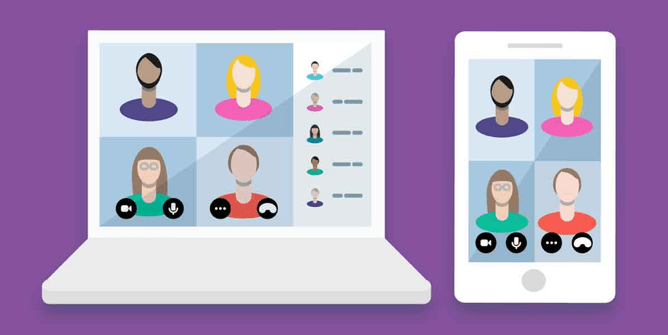As independent consultants we are open to what solutions customers adopt, so long as it is the best one for their organisation. That said, our observation is that organisations are adopting Microsoft Teams faster than anyone had anticipated, due in part to the COVID19 lockdown. Microsoft Teams delivered a platform that allowed working from home with minimal investment in setup time and resources. We have also noted that the success of cloud collaboration tools including Zoom, Microsoft Teams etc. for voice calling, has led organisations to challenge why they should continue investing in their proprietary PBX technology.
Two key insights with respect to PBX replacement options:
Microsoft Teams Calling feature has positioned Microsoft Teams as a contender to replace the PBX, but there are other cloud-based voice/UC options to be considered.
With PBX functionality moving to the cloud, it’s important for organisations to consider the challenges of integrating Contact Centres and the inherent availability differences of cloud versus on premise implementations.
While many organisations to date haven’t been using Microsoft Teams for Calling, the high level of adoption and a general user comfort level in Microsoft Teams is spurning a demand for these organisations to add the Microsoft Teams Calling feature to their environment.
“In adopting this capability, the challenge now will be to harness the potential and figure out how to retire the legacy PBX/Voice solutions and use Microsoft Teams calling to replace or at least come close to matching the PBX features and functionality. As Microsoft Teams is more than just a voice capable platform, the thinking must expand to encompass the full complement of Microsoft Teams with voice being just one element of the feature set.”
The challenge will be to harness the potential of Microsoft Teams, including Calling, to replace legacy PBX features and capability and hence retire legacy PBX solutions. Notwithstanding, as staff, customers and partners adopt the wider array of feature rich digital communication and collaboration tools within Teams, the importance of legacy voice (Calling) will be challenged. This poses a longer-term question regarding the role of legacy voice in general.
In adopting this capability, the challenge now will be to harness the potential and figure out how to retire the legacy PBX/Voice solutions and use Microsoft Teams calling to replace or at least come close to matching the PBX features and functionality. As Microsoft Teams is more than just a voice capable platform, the thinking must expand to encompass the full complement of Microsoft Teams with voice being just one element of the feature set.
Before any decision about the PBX replacement solution is made however, we suggest our clients work through a checklist we provide which includes some of the following questions and challenges.
Will Microsoft Teams deliver an appropriate level of call handling where complex call handling features are required such as IVR, rings groups, call transfers and receptionist capability etc?
Will Microsoft Teams deliver the required level of availability and be congruent with BCP and DR plans?
When the PBX based Contact Centre is replaced with a cloud-based solution, how will it integrate with the likes of Microsoft Teams Calling or a hosted cloud PBX?
Will a change to Microsoft Teams and another Contact Centre solution result in a change of Telco partner to deliver integration and cost-effective call plans associated with the SIP connectivity?
The Edge Communications team has observed that where organisations have adopted Microsoft Teams and staff are making peer to peer Teams calls, moving to full Microsoft Teams Calling is a compelling solution. They are generally prepared to accept a reduced call management feature set over the benefits of the collaboration features inherent in Microsoft Teams.
Where sophisticated call handling is required, larger organisations have added a cloud-based Contact Centre application to provide this functionality. For those smaller organisations that find themselves needing to replace their aging PBX, a range of cloud-based PBX options provide cost effective call management with the flexibility to scale up or down depending on staff numbers.
Finally, before retiring an existing PBX platform we recommend engagement with your organisation’s user group(s) to understand how they want to communicate with customers and peers before looking at specific solutions. Defining their requirements and educating them on solution options before embarking on a new communication and collaboration platform implementation will ensure they stay engaged in the process and embrace the required changes to get the most from these tools.
The Edge Communications team is being increasingly asked by our clients to assist them develop a Telecommunications roadmap to guide the migration from legacy voice systems to a cloud-based integrated voice and collaboration platform. If we can assist your organisation with any Telecommunications challenges, we would be delighted to have a preliminary discussion.
– Dave Gibbon
Phone or email
Dave Gibbon
Dave.Gibbon@edgeconsulting.co.nz
+64 21 331 865
Kerry McFetridge
kerry.mcfetridge@edgeconsulting.co.nz
+64 21 436 559
